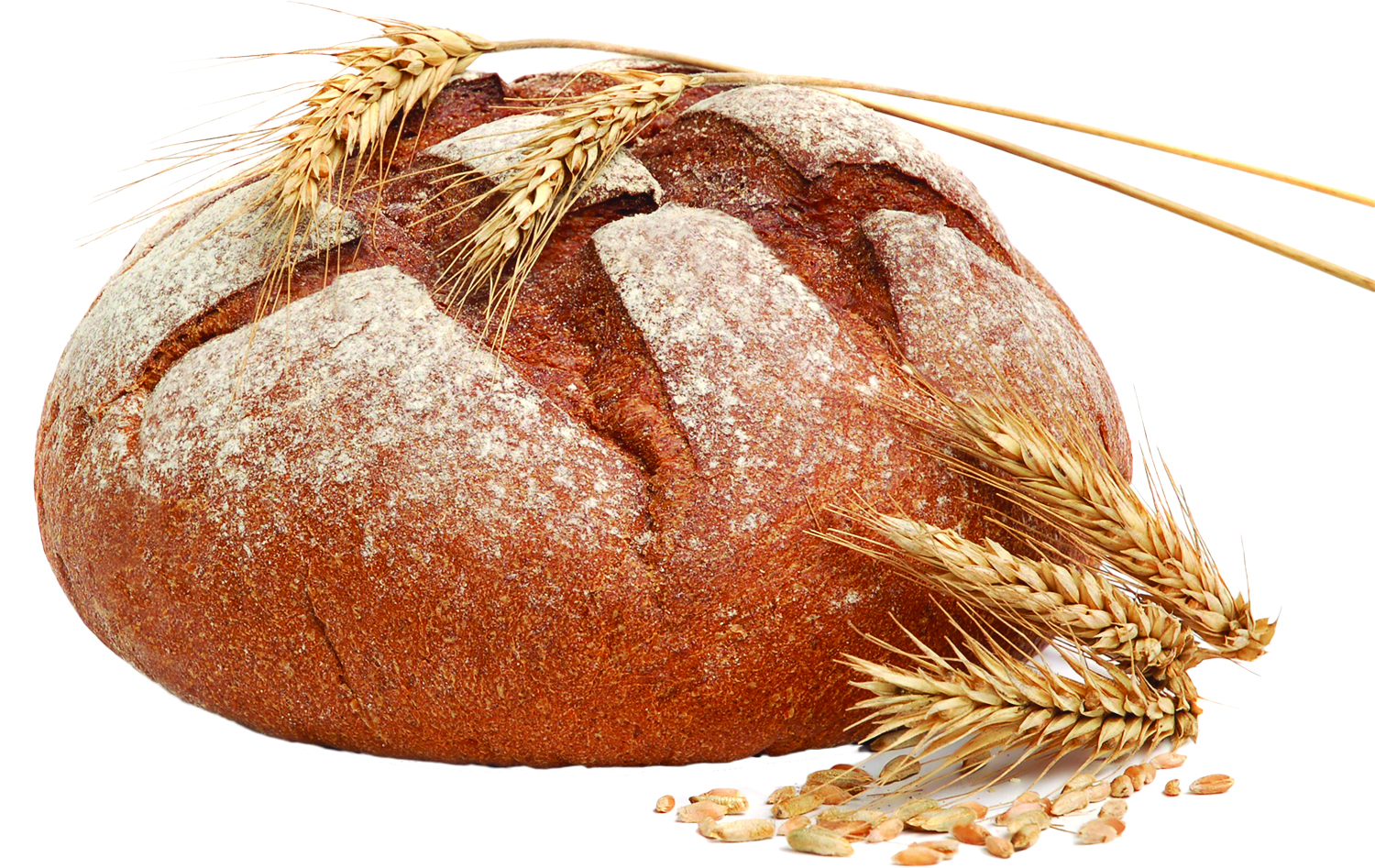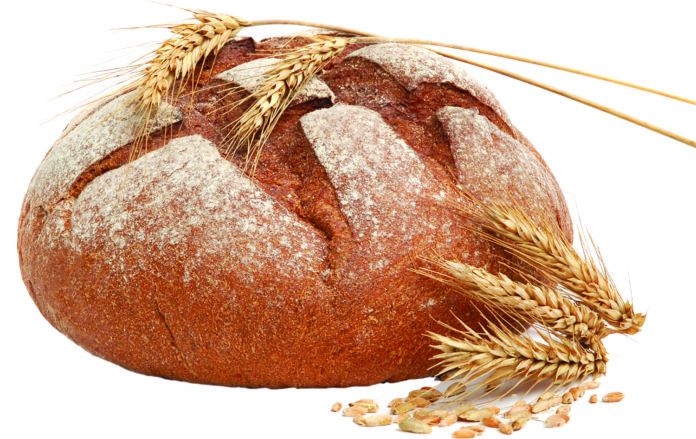Our ancestors who considered bread the staff of life would be mystified by the booming gluten-free food craze, which already exceeds $4 billion in annual sales. Suddenly, bread-at least traditional varieties made from wheat, rye or barley-is the suspect, along with other foods containing the protein gluten. Launches of new gluten-free products have nearly tripled in recent years, along with a bookstores worth of cookbooks and advice titles; a search for gluten-free on Amazon.com retrieves nearly 6,000 books. Even celebrities like actress Gwyneth Paltrow have jumped on the bandwagon, touting her Its All Good gluten-free cookbook.

Paltrow is typical, though, of many adopting the challenging gluten-free lifestyle. She says everyone in her family, including her children, has gluten intolerance or allergies. Since jettisoning gluten, the actress says, she feels lighter and more relaxed and no longer suffers from unexpressed anger that left her alone in my car yelling at traffic or fighting with hangers in my closet when they got stuck together.
Similarly, most people going gluten-free dont actually have celiac disease, a serious condition that affects about one percent of the population. Robert M. Russell, MD, emeritus professor at Tufts Friedman School, explains, In celiac patients there is an immunologic reaction against a component of gluten, which is contained in wheat, rye, barley and other foods. That reaction in turn can damage the lining of the small intestine, leading to problems absorbing nutrients from food, malnutrition, diarrhea and other problems.
Celiac patients need to completely abstain from gluten as a medical necessity, not a fad. Its estimated that only 5% to 10% of people with the disease have been diagnosed, which requires a blood test and a follow-up biopsy to confirm inflammation in the small intestine.
If you are having a problem with intermittent abdominal bloating and pain, unintentional weight loss or chronic diarrhea, Dr. Russell advises, you should consult your doctor. A gluten-free diet will result in a prompt lessening of symptoms in those who have been diagnosed with clinical disease.
He adds, It is not prudent, however to attempt to diagnose yourself by cutting out gluten-containing foods to see if you feel better. This can actually make celiac disease more difficult to clinically diagnose.
NOT NECESSARILY HEALTHIER: What about people who try going glutenfree even though they dont have celiac disease? According to the Packaged Facts market-research firm, only 7% of gluten-free shoppers have someone in the household who has been diagnosed with celiac disease. Instead, consumers view gluten-free products as generally healthier (35%) or believe avoiding gluten will help them lose weight (27%).
Dr. Russell says such thinking is misguided. Although many people with celiac disease show no symptoms, there is no good evidence that a gluten-free diet will benefit most people in any way.
In an address at last years Whole Grains on Every Plate conference, Pamela Cureton, RD, LDN, research dietician at the Center for Celiac Research, tried to puncture the gluten-free boom in blunt terms: There is no evidence that gluten is harmful in healthy people without a gluten-related disease. Despite the claims of some athletes, moreover, Cureton added, There is no evidence that a gluten-free diet will increase sports performance.
As for weight loss, Susan Roberts, PhD, director of Tufts HNRCA Energy Metabolism Laboratory and author of The I Diet www.myidiet.com, says, There is no evidence that eliminating wheat helps weight loss-on the contrary, it often makes it harder. Wheat recipes that are also low glycemic index, like wheat-berry salad, or high-fiber wheat bread, are very helpful for weight because they contain lots of insoluble fiber, which we find is very helpful for hunger control and staying satisfied.
Karen Ansel, RD, a spokesperson for the Academy of Nutrition and Dietetics, agrees: Theres nothing in gluten that makes you gain weight.
Most people who go gluten-free lose weight simply because they eat less-for a while; cutting out a whole swath of food products likely also means cutting down on total calories. Gluten-free options also tend to cost more (one study found gluten-free breads and pastas cost twice as much as traditional versions), providing further incentive to consume less. Another concern with gluten-free foods, says Roberts, is that there is a mass of unhealthy gluten-free products such as cakes, low-fiber breads and even chips that are packed with calories and are likely to cause weight gain.
MISSING NUTRIENTS: Other than in the pocketbook, surely going gluten-free cant hurt you, can it? Gluten-free diets are often higher in fat and lower in vitamin B12, zinc, iron and folate, according to Cureton. A report from the Academy of Nutrition and Dietetics cautioned that gluten-free products averaged lower amounts of B vitamins, calcium, iron, zinc, magnesium and dietary fiber.
Although a few whole-grain choices such as quinoa, brown rice, buckwheat and corn are gluten-free (see box), eliminatinggluten also means cutting out the most popular and common whole-grain foods. Consuming more whole grains has been associated with lower rates of obesity, heart disease, type 2 diabetes and some types of cancer. The US DietaryGuidelines advise making at least half your grains whole and consuming five to eight ounces a day of total grains, depending on your gender and age. Thats a much more difficult target to hit with no wheat, rye or barley on your plate-and many gluten-free plans also eliminate oats.
GLUTEN INTOLERANCE?: What about gluten intolerance or gluten allergies conditions less serious than celiac disease that can nonetheless be improved by avoiding the culprit protein? Many people-more women than men-complainthat eating foods high in gluten makes them feel bloated, irritated in the stomach, depressed, lethargic or, like Paltrow, angry and upset.
Indeed, a double-blind randomized clinical trial-the gold standard of medical research-in 2011, published in the American Journal of Gastroenterology, did find that people with irritable bowel syndrome (IBS) saw their symptoms improve when gluten was eliminated from their diets. Many gluten-free advocates embraced the finding as validation that gluten intolerance is real.
But a more recent trial, published this year in the same journal by some of the same scientists, found no evidence of specific or dose-dependent effects of gluten in patients with non-celiac gluten sensitivity (NCGS). Instead, the researchers fingered another possible culprit, often found in foods that also contain gluten-FODMAPs, short for Fermentable Oligosaccharides, Monosaccharides And Polyols. Also called short-chain carbohydrates, these compounds are fermented by bacteria in your gut, which could cause bloating and pain.
Bread and pasta, among other foods, are high in a type of FODMAPs called fructans. So eating lots of bread and pasta could be responsible for IBS-like symptoms-but not because of their gluten.
It is likely, therefore, that gluten restriction will automatically reduce a patients dietary FODMAP intake, the researchers concluded, and this may explain why so many people report feeling better on a gluten-free diet.
A 2013 Dutch review of the evidence on non-celiac gluten sensitivity, titled Hype or New Epidemic?, noted, The symptoms overlap considerably with those of irritable bowel syndrome, and the number of individuals embracing a gluten-free diet is rapidly growing. No discriminative markers to support a diagnosis of gluten sensitivity have been identified; the perceived response to a gluten-free diet after exclusion of celiac disease is currently the best diagnostic and therapeutic marker. In addition to IBS, some have suggested that apparent problems with gluten may also actually be an allergy to wheat. One of the most common food allergies in children, wheat allergy causes an antibody reaction to proteins found in the common grain-but not specifically to gluten, nor does it affect the small intestine as in celiac disease.
If you suspect you have celiac disease, or exhibit any of the symptoms Dr. Russell lists, you should see your doctor and get tested. You may indeed need to learn to live without the staff of life and other gluten-containing foods.
Otherwise, theres no scientifically valid reason to deprive yourself of the pleasures and nutrition of consuming moderate amounts of wheat, barley and rye, especially in their whole-grain forms.
























